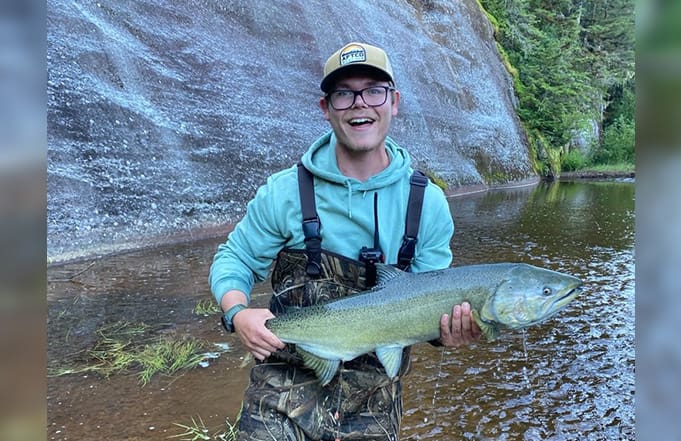December 18, 2024
Colton Folts, a senior Ecology student at the University of Montana Western, gained valuable hands-on experience this summer through a credited internship at the remote Snettisham Hatchery in Alaska, contributing to sockeye salmon population management.

The Snettisham Hatchery, located deep in Alaska’s backcountry and accessible only via a 40-minute bush plane flight from Juneau, is entirely off the road system. Managed by Douglas Island Pink and Chum (DIPAC), a nonprofit organization founded in 1976, the hatchery supports sustainable fisheries and local ecosystems by releasing hundreds of thousands of salmon annually. Originally built in the 1980s by Alaska Fish and Game near a hydroelectric plant that supplies 70% of Juneau’s electricity, the hatchery has been operated by DIPAC as a private nonprofit since the late 1990s.
For Colton’s internship, DIPAC supplied him with a free flight, free housing, and free food for the six months of his employment. Day-to-day life at the hatchery during the first two months consisted of cleaning the juvenile fish starting tanks, feeding, and general maintenance of the facility. By midseason, Colton learned he would have the opportunity to work from July to September at a remote fish trap, counting salmon migrating upstream to spawn in Speel Lake, roughly 15 miles from the hatchery.
At Speel Lake, Colton’s job was to record counts and log samples of fish species for Alaska Fish and Game. This work is extremely important, as wild salmon migrating back to the lake make up the parent population for hatchery fish, playing a vital role in overall fish production in the system. Commercial fishing for sockeye salmon in the basin does not open until an escapement count of at least 4,000 sockeye returning to the lake is reached, based on fish trap counts.
Colton spent two and a half months at the backcountry fish camp, sharing an Alaskan bush adventure in a wall tent with one other hatchery employee. The day-to-day schedule at Camp Speel started at 6:00 a.m. with counting fish in the trap, gathering data, and performing trap maintenance. “When you live in a remote setting, work never really ends,” he said. After official duties, he spent evenings collecting firewood, repairing clothes, cooking, or maintaining camp facilities. “Everything in the bush takes ten times longer than it would in a regular home,” he added.
Once the escapement goal at Speel Lake was met, Colton returned to the hatchery to conclude his internship by participating in the egg take. This process involved dispatching female sockeye and harvesting their eggs for the next year’s hatchery broodstock.
Colton will graduate in May 2025 with a B.S. in Ecology. Having fallen in love with Alaska, he plans to apply to the law enforcement academy in Sitka, AK, aiming to become a state wildlife trooper.
“Helping Colton engage in this internship opportunity in Alaska as part of his UMW student experience, and seeing him thrive, is one of the best parts of my job as a faculty member,” said Dr. Michelle Anderson, UMW Professor of Ecology.
For more information about Experience One and the University of Montana Western, or to schedule a tour, visit www.umwestern.edu or call 877-683-7331.